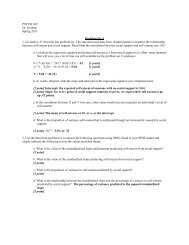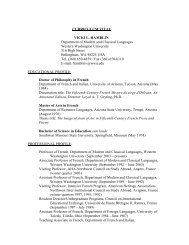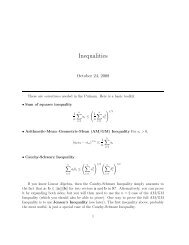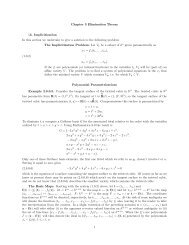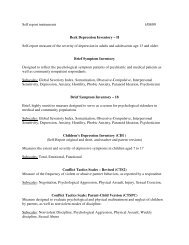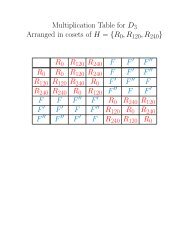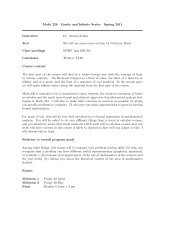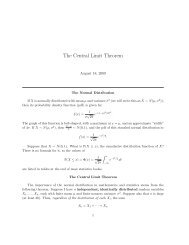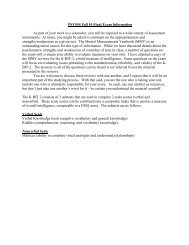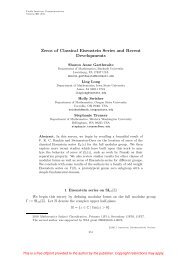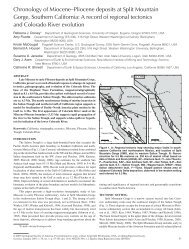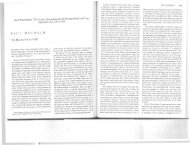Can There Be A Knowledge-First Ethics of Belief? - Western ...
Can There Be A Knowledge-First Ethics of Belief? - Western ...
Can There Be A Knowledge-First Ethics of Belief? - Western ...
Create successful ePaper yourself
Turn your PDF publications into a flip-book with our unique Google optimized e-Paper software.
Non-belief-requiring knowledge-constitutive conditions<br />
theory<br />
(You should believe p) iff (for every condition x such that x is<br />
knowledge-constitutive for p and ¬□(x → Bp), x obtains)<br />
According to this theory, you should believe p when (and only when) you<br />
meet all the conditions which both (a) are conditions at-least-partly in virtue<br />
<strong>of</strong> which anyone who knows p, knows p, and (b) don’t require believing p.<br />
This view nicely sails around the problem <strong>of</strong> compulsory completeness. For,<br />
much like its predecessor that involved mere necessary conditions instead <strong>of</strong><br />
knowledge-constitutive conditions, this theory factors out whatever requires<br />
you to believe p. This theory also sails around the problem <strong>of</strong> conditions<br />
like having a propositional attitude with p as its content. Such conditions are<br />
plausibly not among the conditions in virtue <strong>of</strong> which anyone who knows p,<br />
knows p. Additionally, this theory sails around the problem <strong>of</strong> conditions<br />
like forming the belief that p in the right way. Although that condition is<br />
knowledge-constitutive for p, it requires believing p; and for that reason, the<br />
theory does not say it must obtain, in order for it to be true that we should<br />
believe p.<br />
One might worry that similar conditions still bring up the same problems.<br />
For instance, one might worry that the condition properly forming a propositional<br />
attitude with p as its content is required for us to be such that<br />
we should believe p, given the theory we are now considering. However,<br />
that worry is <strong>of</strong>f-target. Although properly forming a propositional attitude<br />
with p as its content is plausibly necessary for knowing p, it is not plausibly<br />
knowledge-constitutive for p. Although it is at-least-partly in virtue <strong>of</strong><br />
properly forming the belief that p that we know p, it is not at-least-partly in<br />
virtue <strong>of</strong> properly forming a propositional attitude with p as its content that<br />
we know p.<br />
The non-belief-requiring knowledge-constitutive conditions theory finds its<br />
way around all <strong>of</strong> the problems so far discussed for the preceding theories.<br />
It is probably the best attempt we’ve seen so far, among knowledge-first<br />
attempts to say what we should believe. But it has its own laundry list <strong>of</strong><br />
difficulties. Most obviously, it tells us that in every Gettier case, and in every<br />
case where p is false, it is false that you should believe p. For instance, it is<br />
false that you should believe there is a barn in front <strong>of</strong> you, when you are<br />
looking at one which (unbeknownst to you) is surrounded by barn facades.<br />
15




